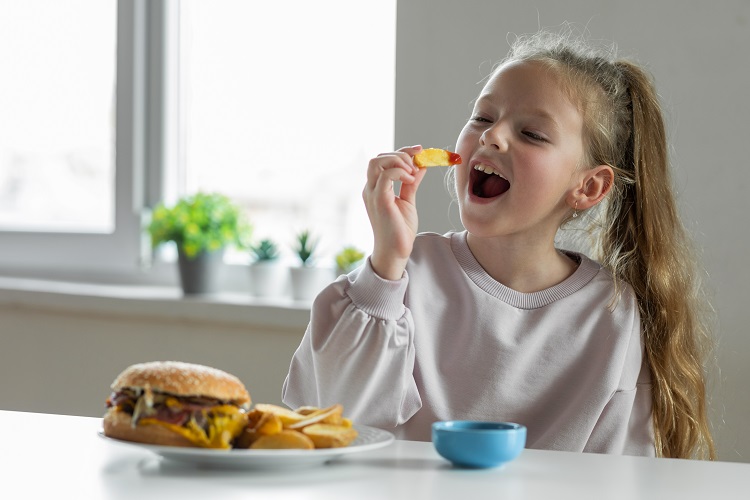
Growing opposition to ultra-processed foods aimed at children (19459000)
The prevalence of ultra-processed foods (UPF) in European supermarkets poses a serious threat to children's health, campaigners say.
Although there has been much research on the impact a diet high in UPF can have on adult health, a study was conducted in May. Researchers in SpainThe effects of UPF on children were studied by collecting data from 1,500 children aged three to six years and comparing it with the percentage of their diet.
The study found that children who consumed the most sugar were likely to be heavier, have a higher BMI and a larger waist circumference. They also had higher levels of fat and blood sugar, etc., than those who consumed less.
The study results come as food manufacturers are increasingly being called upon to reduce the amount of UPFs in children's foods.
The prevalence of UPF in children
First Steps Nutrition Trust, a UK charity that focuses on child and baby nutrition, found in a study last year that up to 80% of available foods were ultra-processed. According to a study conducted by the charity, UPFs account for almost two-thirds of the total energy intake of British children aged two to five – a higher proportion than in Australia and the US. The research found that UPFs include ready meals, baby purees, finger foods, vegetable snacks and fizzy drinks aimed at children and toddlers.
For its research, the association relied on the NOVA classification system. This model defines UPFs as products containing many ingredients such as additives or hydrogenated fats. They are often of industrial origin and have a very long shelf life.
In July, Other studyThis high UPF consumption is evident throughout European adolescence. Combined research from the Universities of Bristol and Cambridge found that two-thirds of adolescents' energy consumption comes from UPF consumption. The highest rates were found among adolescents from poor backgrounds, whites and younger adolescents.
Yanaina Chua-Ugalde, associate researcher, said: “It is clear that the vast majority of adolescents are consuming ultra-processed foods, at levels well above those recommended, given their negative impact on health.
Health threat: Serious
Rob Percival is head of food policy at the Soil Association. He has been directly calling for government action through policy changes, such as mandatory standards for school purchases.
He says ultra-processing is characterized by chemicals such as artificial flavors, colors and emulsifiers.
Governments around the world, including France, Canada and Latin America, are beginning to implement policies focused on ultra-processed foods, forcing manufacturers to find alternatives.
He adds: "We need to go further." The government should regulate these foods and limit the lobbying power of the food industry. They must also ensure that everyone can enjoy and access healthy, fresh food.
Responding to concerns
Alexandra Hayes believes some food brands and manufacturers have taken steps to reduce growing concerns about UPFs in children's foods.
She says that in response to these criticisms, organisations like Ella's Kitchen have set ambitious targets to improve children's eating habits, including increasing their consumption of fruit and vegetables through their products. This is a much-needed initiative, given recent sobering statistics from the Food Foundation [which laid out the deterioration in children's health and wellbeing in its recent June report].
“We’ve [also] seen an increase in premium fresh and frozen baby foods, including Rumble Tums founded by Madeleine Shaw,” she adds. “These launches, which rely on nutritionally sound recipes and high-quality ingredients, have disrupted the baby food category, but they’re not affordable for many people.
Lauren Woodley, senior nutrition manager at Nomad Foods, says the company, which makes Birds Eye, is also focused on the issue. We are committed to responsible marketing and making sure that the products we know kids love, like fish fingers, chicken dips, potato waffles, Goodfella pizzas, we market responsibly
. We also want to demystify the manufacturing process of our products. give our customers peace of mind. Our iconic fish fingers, a family favourite, are produced in our factories as if they were made at home by a customer, using only fish, breadcrumbs and healthy rapeseed oils.
she emphasizes. It should be emphasized that the exact definition of UPFs is still a subject of debate.
Nomad Foods uses the UK government's Nutrient Profiling model to determine the majority of its branded products. This means that 93.3% of the company's branded product sales are considered 'healthy'.

